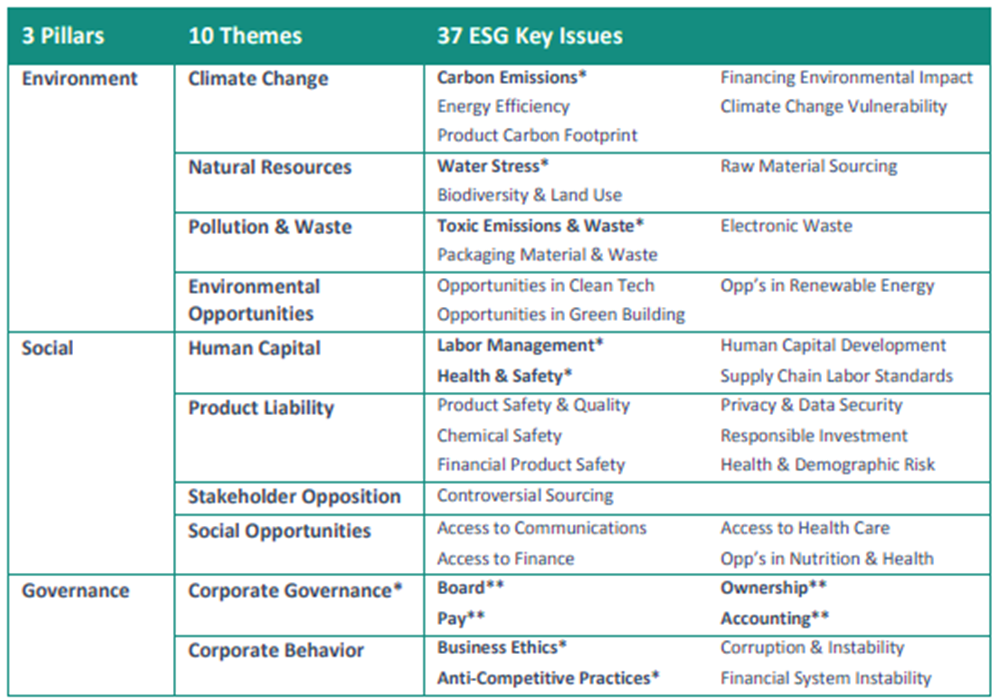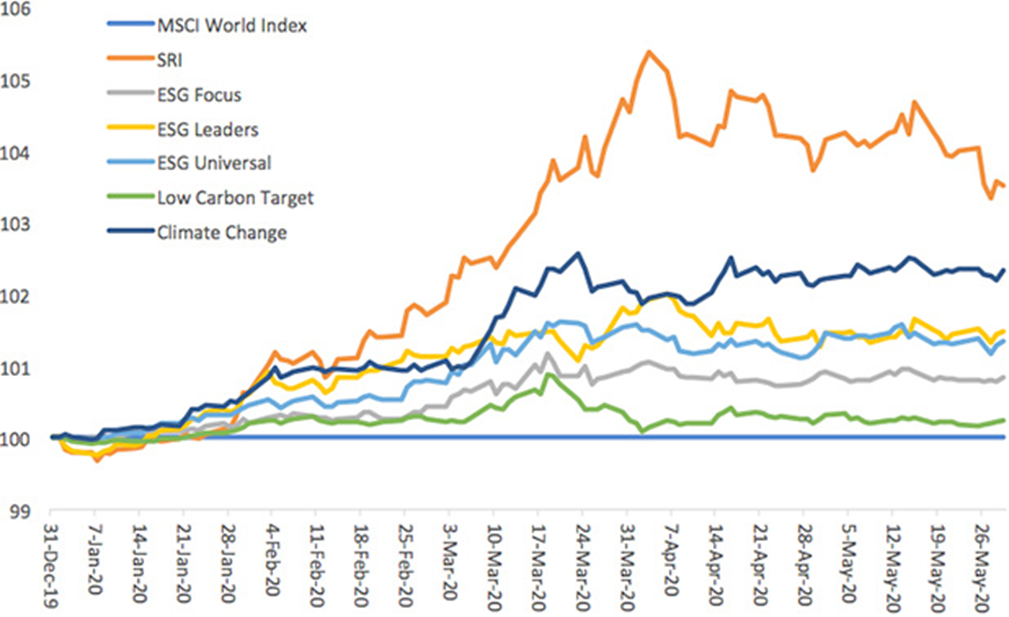Green Shoots
COVID-19 has raised awareness of the importance of ESG (environmental, social, and governance) factors in investing, especially the S and G. Companies that have strong governance frameworks that manage sector specific risks and those that continue to act in the best interest of communities, have shown resilience.
While we continue to traverse this new world shaped by a pandemic, there have already been some lessons that can help investors in the future. Companies that have strong governance frameworks that manage sector specific risks and those that continue to act in the best interest of communities, have shown resilience during this year’s market volatility.
Recent research too finds ESG investing can help protect investors from downside risks and help navigate unfavourable markets.
The importance of a transparent, rules based methodology
Evaluating a company’s ESG credentials can be tricky. What one person considers to be unethical or acceptable behavior can vary from one person to the next.
Selecting the best companies to be included in an ESG fund requires a comprehensive process that relies on extensive research and analysis. MSCI is the world’s leading index provider and ESG researcher. The MSCI World ex Australia ex Fossil Fuel Select SRI and Low Carbon Capped Index incorporates best-of-breed ESG analysis, which seeks to identify industry ESG leaders and laggards.
MSCI rates companies on a ‘AAA’ to ‘CCC’ scale according to their exposure to ESG risks and how well they manage those risks relative to peers. MSCI’s 200+ analysts rate 8,500 companies globally, collecting thousands of data points for each company. There are only a handful of key issues that MSCI has determined to be financially relevant. These 37 key issues, broken down by theme sit under the three pillars of E, S & G.
MSCI's 37 Key ESG themes
* Indicates "universal" issues assessed for all companies in MSCI World
** Board, Pay, Ownership, and Accounting carry weight in the ESG Rating model for all companies. Currently, they contribute to the Corporate Governance score directly and 0-10 sub-scores are not available.
The Index includes only those companies that rank in the top 15% by market-cap for ESG performance from each specific sector.
Every ESG fund should have a robust and transparent framework. It should be easy to understand and it should be clear who is conducting the research to ensure there is no undue influence.
Sustainable investing helped mitigate declines
COVID-19 has accelerated awareness of ESG factors. The pandemic has raised awareness of social factors, including the responsibility of companies to minimise the impacts of the pandemic and to support the community during incredibly challenging times. What we now know is that doing “good” has helped some companies to perform well during this crisis.
MSCI research examined the performance of ESG investments during the COVID-19 pandemic. MSCI examined the performance of six of its indices: four with explicit ESG objectives including socially responsible investing and ESG leaders; and two with explicit climate objectives, including low carbon target and climate change. As you can see in the chart below, during the first five months of 2020, all six indices outperformed the broader share market (as measured by the MSCI World Index, shown as the [insert colour] line) with some of that outperformance attributed to ESG factors.
The results are a compelling argument to include ESG investments in your portfolio.
Relative performance of selected MSCI Indices with ESG and climate objectives
Source: MSCI, as at 31 May 2020
Access the best ESG analysis
Incorporate MSCI’s world-leading ESG research in your portfolio via VanEck Vectors MSCI International Sustainable Equity ETF, which tracks the MSCI World ex Australia ex Fossil Fuel Select SRI and Low Carbon Capped Index.
You can access the ESG ratings of thousands of companies via MSCI’s online search tool. In addition to rating companies, MSCI also aggregates its data to assess funds. You can compare funds here. (Tip: the search tool works best when using the fund name as opposed to the ASX code.)
Published: 08 July 2020
IMPORTANT NOTICE: This information is prepared in good faith by VanEck Investments Limited ABN 22 146 596 116 AFSL 416755 (‘VanEck’) as the responsible entity and issuer of VanEck Vectors MSCI International Sustainable Equity ETF ARSN 623 953 177 (‘ESGI’). This information is intended for financial services professionals only. It is general advice only about financial products and not personal financial advice. It does not take into account any person's individual objectives, financial situation or needs. Before making an investment decision investors should read the product disclosure statement and with the assistance of a financial adviser consider if it is appropriate for their circumstances. A copy of the PDS is available at www.vaneck.com.au. The fund is subject to investment risk, including possible loss of capital invested. The PDS details the key risks. No member of the VanEck group guarantees the repayment of capital, the payment of income, performance, or any particular rate of return from the Fund. ESGI is indexed to a MSCI index. ESGI is not sponsored, endorsed, or promoted by MSCI, and MSCI bears no liability with respect to ESGI or the MSCI Index. The PDS contains a more detailed description of the limited relationship MSCI has with VanEck and ESGI.




